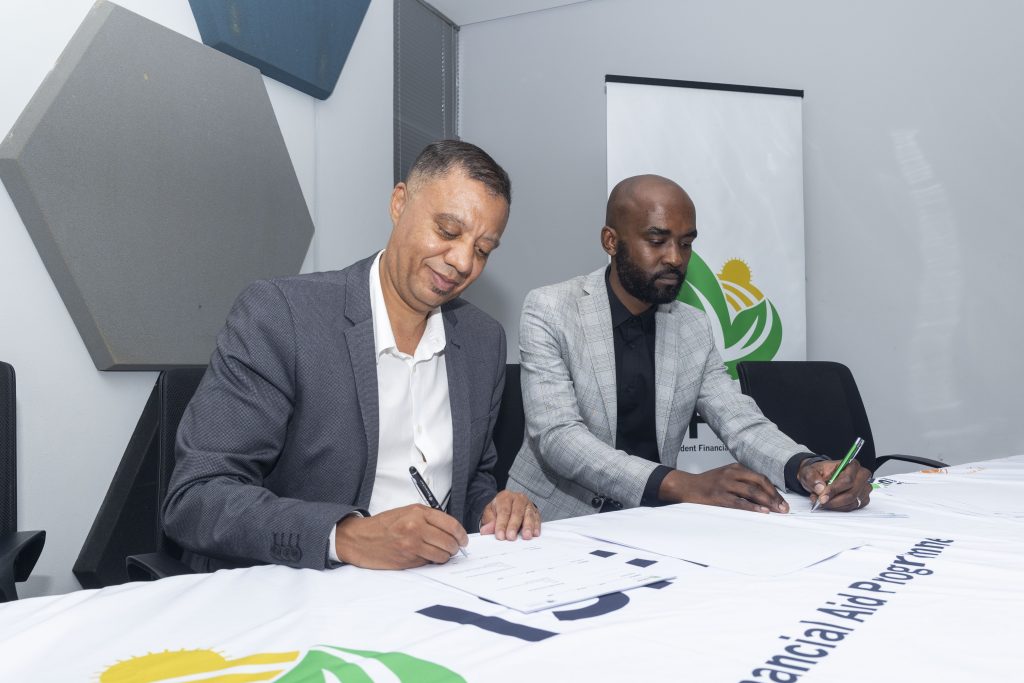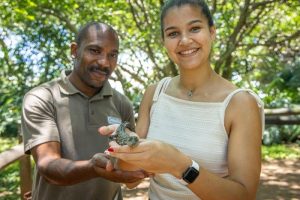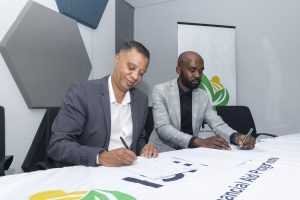
Inclusive new model supports students without the need for upfront payment or collateral, with repayment only after graduation
In a groundbreaking move to make higher education more accessible, the Ikusasa Student Financial Aid Programme (ISFAP), in partnership with fair finance organisation, Chancen South Africa, has launched an Income Share Agreement (ISA) pilot programme that will fund 60 final-year students in 2025, with plans to scale up to 500 students in 2026.
The ISA model was officially signed into agreement on 12 September 2025, at the ISFAP offices in Sandton Johannesburg, see images here, and offers a sustainable alternative to traditional student loans. Under this model, students from poor and missing middle households who did not receive bursary funding can complete their studies without upfront payment or the need for collateral. Graduates only begin to repay once they are employed, with a minimal monthly service fee for unemployed graduates.
“This model expands our ability to support more students in a sustainable way,” said Werner Abrahams, CEO of ISFAP. “It’s an innovative response that gives more young people access to university education, which will enable them to build a career and contribute to the economy in years to come.”
The pilot also includes a strong support framework: financial literacy training, employment transition assistance, and ongoing engagement with students to promote academic and career progression. The initiative targets 65% female participation and will be implemented across six public universities in South Africa.
Chancen SA’s Country Director added: “Our partnership with ISFAP is more than finance – it’s a promise to young people that their dreams are valid and achievable. Together, we are building a movement that makes education financing fairer, accessible, and rooted in dignity. We invite others across the ecosystem to join us in building a movement that gives every excluded youth a fair chance to succeed.”
With students being onboarded in the coming weeks, a formal launch event is planned for later this year. In preparation, ISFAP and Chancen South Africa will also release a public Q&A brief and a comparison matrix showing how the ISA model differs from traditional student loan offerings that are currently available.
This pilot represents a shift in how the country thinks about funding education, moving away from debt-heavy models and toward solutions that align with employability, economic mobility, and fairness.
About The Author
![]()
Subscribe To Our Weekly Newsletter











